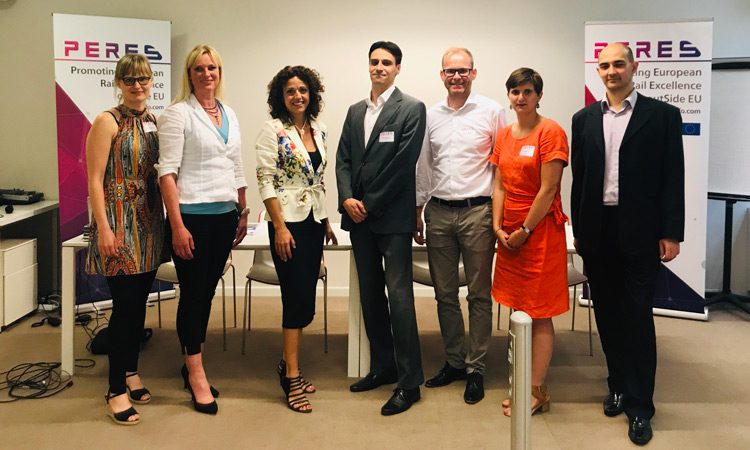Rail Alliance helps deliver major internationalisation rail study project
Posted: 28 June 2019 | Global Railway Review | No comments yet
The ‘PERES – Promoting European Railway Excellence outside EU’ project is a partnership of five European Clusters from the railway sector seeking to assist European railway industry SMEs to expand and offer their products and services on non-European markets.


Running under the umbrella of the European Union’s COSME programme, the PERES European Strategic Cluster Partnership (ESCP-4i) composed of five railway clusters from Italy, France, Germany, United Kingdom (the Rail Alliance) and Southeast Europe explored the needs and potentials of the European SME industry in the railway sector, and set up a framework for internationalisation to the non-European markets.
Commencing in January 2018, the project has analysed over 250 small- and medium-sized companies in the railway industry from 10 European countries, seeking to create pan-European supply value chains, locate potential solutions that can be successfully implemented in non-European markets, and identify the issues, the desired target countries and the type of support that European SMEs need in order to successfully offer their products and services on non-European markets.
Based on the analysis of the SME cluster members’ potentials, the project selected the United States and India as suitable targets for placement of products and services. A pilot study trip to the U.S.A. was organised in March 2019, meeting in three States representatives of select U.S. railway operators, as well as manufacturers, educational institutions and research centres related to the railway industry. The study trip identified the needs and the specifics of the U.S. railway market, in order to find the potential areas that could be addressed by the European SMEs.
Veronica Elena Bocci, PERES Project Coordinator, said: “What we have seen is that the railway sector in the U.S. faces many challenges – and that it is ready to innovate and improve in order to address them. The important thing is that European SMEs understand these challenges and have the know-how to address them in a reliable, innovative, competitive and punctual manner. In the U.S. ‘time is money’ is a fundamental criteria for collaborations, and flexibility SMEs have can give answer to this.”
Her optimism is shared by other members of the project team. Marko Radovic, partner of the PERES project, commented: “The European railway industry has gone a long way toward having reliable, safe and environmentally-friendly transport. Our SMEs’ solutions are highly interesting to U.S. operators that seek to make railways a more attractive mode of transport for passengers.”
A strategic framework based on the project’s findings was drafted to support the internationalisation of the European SME railway industry. However, such initiatives depend heavily on further integration and cooperation within the industry itself and the support of the European institutions.
Dirk-Ulrich Krüger from cluster BTS Rail Saxony and ERCI Spokesperson, said: “Today, cooperation in the industry is necessary in order to stay competitive. Through our European Railway Clusters Initiative (ERCI) we seek to connect companies and support them in joint research and development programmes, strengthen their cooperation and support them in their activities throughout and outside Europe, such as the PERES project.”
Global Railway Review Autumn/ Winter Issue 2025
Welcome to 2025’s Autumn/ Winter issue of Global Railway Review!
The dynamism of our sector has never been more apparent, driven by technological leaps, evolving societal demands, and an urgent global imperative for sustainable solutions.
>>> Read the issue in full now! <<<
Related topics
Related organisations
Related people
Dirk-Ulrich Krüger (ERCI), Marko Radovic (PERES), Veronica Elena Bocci








